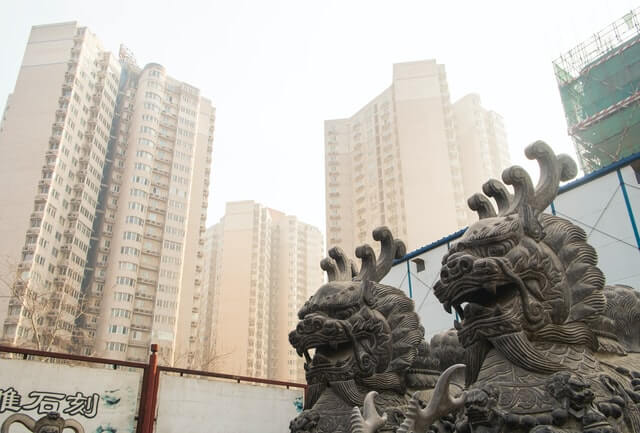
In China, the career of judges has always been desirable. However, in recent years, Chinese judges have become increasingly dissatisfied with their profession, and some have chosen to leave. Why are some judges dissatisfied and why do they leave? One of the goals of China’s judicial reform is precisely to solve this problem.
This post is an introduction to the article titled "A Survey of Chinese Judges' Job Satisfaction: An Analysis of 2660 Questionnaires" (中国法官职业满意度考察:以2660份问卷为样本的分析), which was published in “China Law Review” (中国法律评论) (No. 4, 2015). The author is Hu Changming (胡昌明), a judge of the Beijing High People's Court and a post-doctoral fellow at the China Institute of Applied Jurisprudence of the Supreme People's Court (SPC).
The author's project team conducted a questionnaire survey on the job satisfaction of Chinese judges from 30th March to 10th April 2015. A total of 2660 questionnaires were retrieved, accounting for 1.4% of 190,000 judges nationwide. The survey respondents consisted of judges from courts at various levels, covering all provinces in China, ranging from local courts at three levels to the SPC. These surveyed judges include presidents of courts, directors of divisions, and other judges not holding executive positions. Questionnaires are posted on the Internet and are filled out voluntarily by judges.
1. Chinese judges are generally young
The average age of the surveyed judges is 38. Among them, two-thirds of the judges are less than 40 years old, judges below the age of 35 account for 46.99%, judges under 50 years old account for 94.62%, and 66.54% of the judges have served for less than 10 years.
2. Chinese judges belong to the highly educated group in China
In terms of the educational level of the surveyed judges, 97.85% have bachelor’s degrees or above, among which 33.05% have master's degrees, and 1.32% have doctoral degrees.
3. Chinese judges are mostly married
In the survey, the proportion of married judges is 86.39%, and the proportion of judges with children is 79.06%.
4. More than half of the judges are dissatisfied with the current working status
Only 12.37% of the surveyed judges are very satisfied, or slightly satisfied with the current working conditions. 30.53% say they feel OK, 34.89% say they feel slightly dissatisfied, and 22.22% say they are very dissatisfied. The total percentage of those feeling slightly satisfied and very dissatisfied is as high as 57.11%.
5. The judges’ intention to resign is strong
Among the surveyed judge, 94.47% considered leaving the court, 57.37% seriously considered leaving the court, and 9.81% are currently preparing to resign. Only 5.53% of the judges never think of leaving the court.
6. Judges’ job satisfaction is related to their intention to resign
Among the judges who are very satisfied with their current work, 38.2% never think of leaving the court, 32.4% only occasionally think about leaving the court, and only 29.4% seriously considered leaving the court.
The judges who are slightly dissatisfied with their current work have a stronger intention to leave. Among these judges, only 1.9% have never thought of leaving the court, 66.71% seriously considered leaving the court, and 8.4% are currently preparing to leave the court.
The judges who are very dissatisfied with their current work have the strongest intention to leave. Among these judges, 1.5% never think of leaving the court, 14.9% occasionally think of leaving the court, 83.59% seriously considered leaving the court. In addition, 23.7% have already prepared to leave the court.
7. Reasons why judges are dissatisfied with their work
(1) High work intensity
Among the judges surveyed, 73.49% think the work intensity is too high. The intensive work mainly refers to the heavy caseload, in particular, a significant number of difficult cases.
(2) Long working hours
Judges who regularly work overtime have lower satisfaction index than those who work overtime only occasionally. The average judges' satisfaction index for judges with an average of 1 hour of overtime work per week is 48.56. The satisfaction index for those with an average of 5-10 hours of overtime work per week is 45.94. The satisfaction index for those with an average of 15 or more hours of overtime work per week is 42.75.
(3) High occupational risk
Among the surveyed judges, 78.01% think the occupational risk is too high. This occupational risk mainly manifests itself in two categories:
The first is that judges are asked to take too much responsibility for the erroneous judgments ("wrongful-judgments"). 43.95% of the judges fear that wrong cases might arise, and 49.89% of the judges think that it is unreasonable to ask them to assume the liability for the erroneous judgments.
The second is external pressure on the judges. 75.19% of the judges believe that they face the risk of verbal abuse and physical attacks; 78.83% of the judges are concerned about the petitions filed by the parties concerned through letters and visits (in Chinese, the Xinfang (信访) system); 31.2% of the judges are troubled by superior leaders’ intervention when rendering judgments.
8. The salaries are rather low
The proportion of judges with a monthly income of less than RMB 5,000 is 80.53%, while the proportion of judges with a monthly income of less than RMB 3,000 is 27.41%. The average monthly income of all investigated judges is RMB 4233 (approximately USD 623) and the annual income is RMB 50,712 (approximately USD 7469).
The lower the judges’ income is, the lower their satisfaction index is. Among the judges who are not very satisfied or dissatisfied with their work, the percentage of their dissatisfaction with income is as high as 93.88%.
9. Judges with higher household expenses have lower satisfaction index
For judges whose monthly household expenditure is less than RMB 2,000, the satisfaction index is 45.59. By contrast, for those with over RMB 2,000 monthly household expenditure, the satisfaction index is only 42.85.
10. Housing impacts judges’ satisfaction
The satisfaction index of judges who rent houses is 44.18; the satisfaction index of the judges who live with their parents is only 44.84. For judges who already own houses without paying off any housing loan, their job satisfaction index is 48.63.
11. Female judges are more satisfied with work than male judges
The male judges’ job satisfaction index is 46.13, while the index for their female counterparts is 48.22.
If you would like to discuss with us about the post, or share your views and suggestions, please contact Ms. Meng Yu (meng.yu@chinajusticeobserver.com ).
If you wish to receive news and gain deep insights on Chinese judicial system, please feel free to subscribe to our newsletters (subscribe.chinajusticeobserver.com ).
Contributors: Guodong Du 杜国栋 , Meng Yu 余萌









